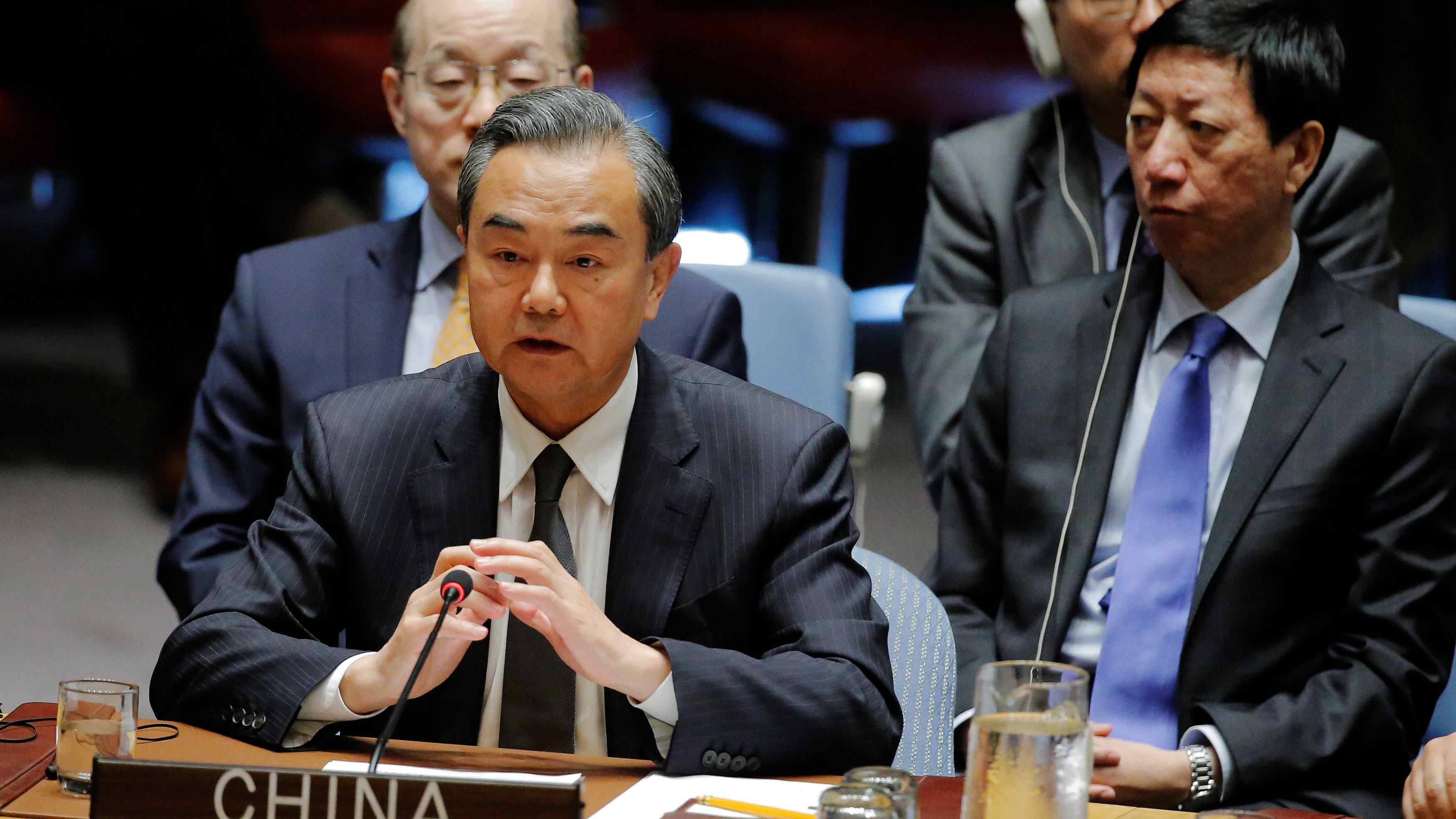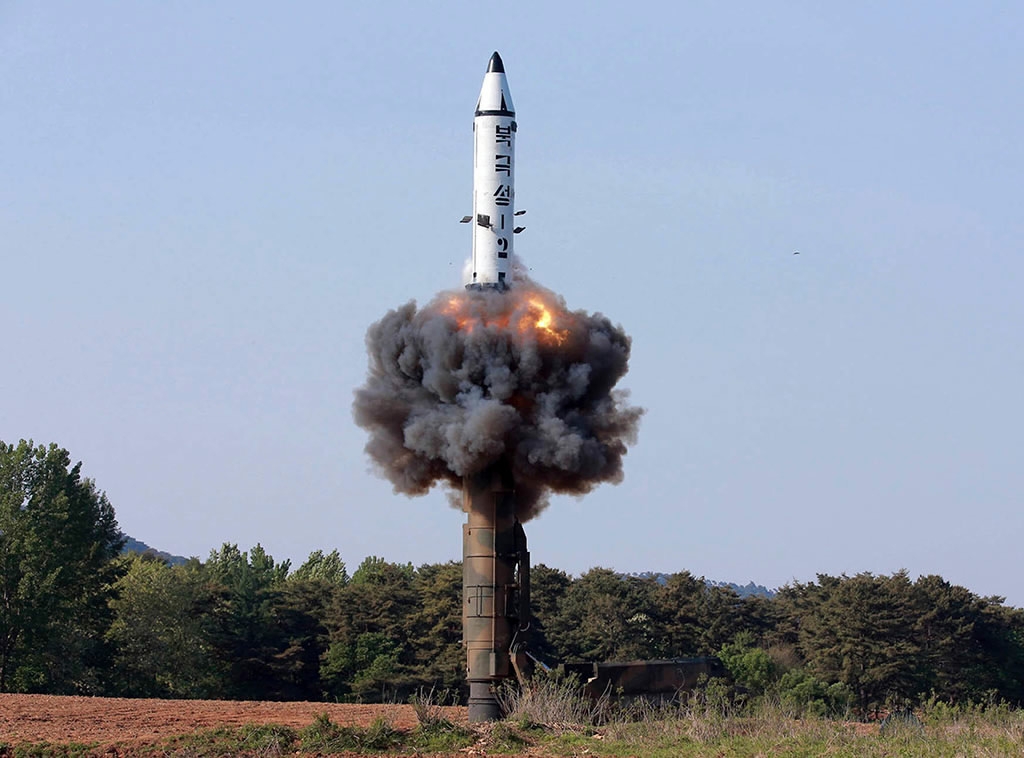
Politics
12:53, 21-Sep-2017
China wary of 'more serious' situation in Korean Peninsula
CGTN

The situation on the Korean Peninsula is getting more serious by the day and cannot be allowed to spin out of control, Chinese Foreign Minister Wang Yi told his German counterpart.
A resolution to the Democratic People’s Republic of Korea (DPRK) issue cannot only rely on sanctions and not talks, Wang said, meeting German Foreign Minister Sigmar Gabriel on the sidelines of the United Nations General Assembly in New York on Wednesday.
China has always favored a peaceful solution. In the absence of dialogue and negotiations, there can be no solution through sanctions and pressure alone, Wang said.
The international community should turn the pressure of sanctions into a thrust for negotiations at a proper time, create conditions for talks and seize opportunities for dialogue, he added.

A solid-fuel “Pukguksong-2” missile. /AP Photo
A solid-fuel “Pukguksong-2” missile. /AP Photo
China appreciates Germany's support for the Chinese suspension-for-suspension proposal and expects Germany to make efforts to promote peace and negotiations, Wang told his counterpart.
Gabriel said Germany is concerned about the situation on the Korean Peninsula, and the fact that the international non-proliferation regime is under threat. Germany believes the Korean Peninsula nuclear issue must be solved peacefully, through dialogue and negotiations. There should be no military option.
The German envoy said his country supports China's suspension-for-suspension proposal and appreciates the US policy of "Four Nos." Germany is calling for an early resumption of talks and is willing to play a constructive role in the peaceful settlement of the issue, he said.
China's initiative calls on the DPRK to suspend its nuclear and missile activities and on the United States and the Republic of Korea (ROK) to suspend its large-scale war games.
The US policy of "Four Nos" refers to Washington's promise not to seek a regime change in Pyongyang, not to seek the collapse of the DPRK government, not to seek acceleration of reunification of the Korean Peninsula, and not to send its military north of the 38th Parallel that acts as the boundary between DPRK and ROK.
The two ministers also exchanged views on Afghanistan.
11001km
Source(s): Xinhua News Agency

SITEMAP
Copyright © 2018 CGTN. Beijing ICP prepared NO.16065310-3
Copyright © 2018 CGTN. Beijing ICP prepared NO.16065310-3